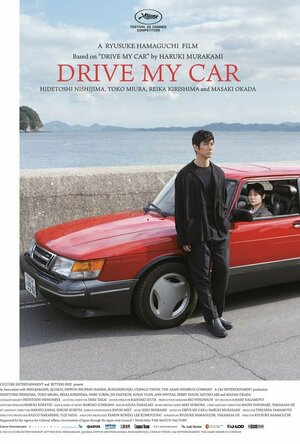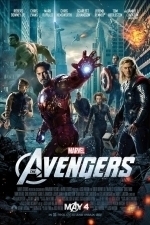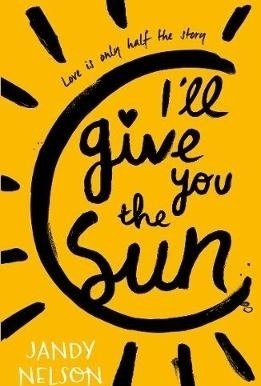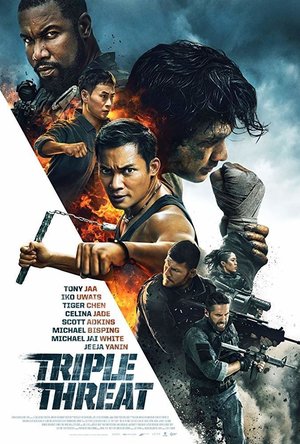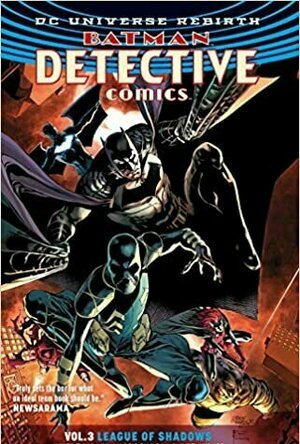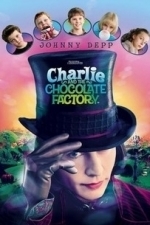
PI.EXCHANGE
Lifestyle
App
WHY WE MAKE THIS APP PI.EXCHANGE strives to change the way the personal data ecosystem operates. We...

Puzzle Game for Kids! Create&Play! FREE
Games and Education
App
Assemble these cute forest animals out of colorful parts and watch them come to life right under...
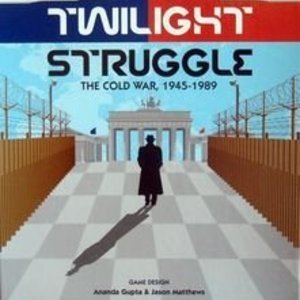
Twilight Struggle
Tabletop Game
"Now the trumpet summons us again, not as a call to bear arms, though arms we need; not as a call to...
Boardgames 2playergames PoliticalGames HistoricalGames
BankofMarquis (1832 KP) rated Drive My Car (2021) in Movies
Mar 19, 2022
And I would be wrong with that assumption as DRIVE MY CAR is the BEST FILM of 2021 with raw, pure and honest performances that draws you in and touches your heart.
Directed by Ryusuke Hamaguchi (who was Oscar Nominated for his work), DRIVE MY CAR follows a renowned Actor/Director who heads to Hiroshima to Direct a production of Uncle Vanya while grappling with the consequences of the unexpected death of his wife - and the unresolved issues of their marriage. While in Hiroshima, he is forced to accept a chauffeur for his duration there and the relationship between the two begins to unlock long dormant emotions.
Sounds like it could end up being a modern version of DRIVING MISS DAISY, right? Wrong. In the hands of Hamaguchi, from an Oscar Nominated screenplay that Hamaguchi wrote with Takamasa Oe (based on the short story by Haruki Murakami), Drive My Car becomes a character-driven drama that peels the layers of the onion back at a deliberate pace (in this case, that’s a compliment) to reveal what is at the core of the main characters.
What drew me into this film (a movie who’s 3 hour run-time seemed short to me), was the performances that Hamaguchi was able to draw out of his talented cast, they are - top to bottom - raw, honest and real. Starting with Hidetoshi Nishijima as Actor/Director Yusuke Kafuku. He plays this character with a stoic pragmatism, but it is played in such a way that you understand that there are emotions broiling underneath this façade and they, eventually, will need to find their way out. But the brilliance of this film is that when this character finally opens up, it is not a showy, “yelly” performance, it is subtle, small - and effective.
Matching Nishijima’s stoicism (at least early on) is Toko Miura as the chauffer. She is enigmatic in the early goings of the film, listening much more than talking but as Kafuku opens up, she does as well, and it is this part of the film that really drew me in.
Also, surprisingly to me, was the rehearsal/performance scenes of Uncle Vanya that are sprinkled throughout this film. I am NOT a scholar (or fan) of Chekov’s works (I find them to be too introspective) but the scenes that are shown are a mirror to what is happening to these characters outside of the theater and were affecting (particularly a scene that the company does in the park between two female characters). I’m sure a Chekov scholar could comment on the parallel themes at work here - but I am not that scholar and that did not diminish my love of this film. It does do one surprising thing - it makes me (almost) want to see a full production of Vanya…almost.
And therein lies another layer to this film - the eclectic group of performers that populate the company of actors that perform Vanya - they perform in Japanese, Mandarin, English and (in one case) sign language. I was reading the subtitles anyway (yes, please view this film in it’s original language with subtitles - you’ll feel the emotions of the actors’ performances) and this disparity between the performers enhanced what was already an intriguing film.
Not for everyone, the pace and themes of this film will turn many off early on, but if you click into the feel of this film, you will be rewarded with a very rich experience.
Letter Grade: A
9 stars (out of 10) and you can take that to the Bank(ofMarquis)
Ryan Hill (152 KP) rated The Avengers (2012) in Movies
May 9, 2019
Whenever people bring that aspect up, they usually talk about the splash panel inspired sequences (the long take through the Battle of New York), but nobody tends to talk about the choices he makes with how he and Seamus McGarvey decide to shoot the smaller scale scenes like they were regular panels.
Take Loki's entrance for example; as the laser begins to open the portal, we cut above, seeing how big the room is and how long the laser is, all in a wide, beautiful shot, taken from an angel to capture the intensity of the villain's entrance, and then that's followed up with a panel inspired close up on Loki's eyes as he breaks into a grin. Or the shot of Natasha being integrated from the prospective of the mirror in the room, and we see various different treasures as it pushes away from it.
Or probably the best example of this, is Steve's introduction; repeatedly working himself up with every punch, flashing back to the events in his life that make him feel the most intense, before punching it straight off its hook, only for him to grab another one of several he has lying there.
It's little touches like this that are sprinkled throughout, making you feel like you're watching a comic book in motion without having to go full on "Scott Pilgrim", "Into The Spider-Verse", "Speed Racer", or even "Batman: The Movie", along with capturing the lavish and striking lighting and colors found within some of the best artists for them.
Plus, while Whedon's writing is known for his sense of humor (for better and worse, especially when it comes to it's impact on the rest of these films post this one), I don't think enough of us take into account how much that humor is there to service the characters, not just the viewers.
Both this and his work with Drew Goddard on "Cabin in the Woods" showcase this perfectly. When Marty in "Cabin" asks if anyone else thinks something weird is going on when Curt contradict himself by saying they should split up, he isn't just saying that for the sake of a gag, it's Whedon and Goddard's way of hinting that he knows more than the others, and establishing that he's immune from these tricks being played on them.
When Steve and Tony are arguing about who's stronger and Steve keeps saying "put on the suit!", once shit hits the fan, he says it once again, but in a way that's far more urgent and fearful, not just being there for the sake of a funny payoff, but as progression for the next series of events that need to play out.
And, man....
There's just so many great moments. Not just the action or the characters working off of each other, but little moments, like the Old Man standing up for Earth to Loki, Steve giving Fury ten bucks after seeing the Helicarrier in action, Bruce mentioning the time he figured he had enough and how he couldn't end it himself, complete with the fear trembling in his voice and facial expression, Loki saying "I'm listening" as Thor was taken away from him, or his monologue to Natasha, the entire New York battle centering around them both trying to keep the army at bay and save as many by standards as possible, just too many to name.
It's one of the most memorable and entertaining blockbusters of this decade and while it doesn't feel as special seeing all of these people in the same movie anymore, it still has them at their best and manages to do it so effortlessly. Like it's one thing that this movie exists, but the fact that it worked is something that'll never not be amazing.
What else can I say, really? It's "The Avengers". You've likely seen it, memed about it, quoted it, referenced it, it doesn't matter, it's been here for nearly ten years now and it's impact is still felt and mentioned. As well as something that's super easy to put on and rewatch, either for some lazy day entertainment, or to revisit during the lead up to their next big adventure.....
Louise (64 KP) rated I'll Give You the Sun in Books
Jul 2, 2018
I loved this book the writing was so poetic and beautiful. The story is written from two perspectives and at different times. Noah's perspective is written when he is 13. 5 years old and before 'said' tragedy struck and Jude's when she is 16 - two years later. At 13 years old the pair were close with sibling rivalries, respecting each others art and dividing the world up.
“I gave up practically the whole world for you,” I tell him, walking through the front door of my own love story. “The sun, stars, ocean, trees, everything, I gave it all up for you.”
At 16 the pair couldn't be further apart, they constantly avoid each other and barely talk. When lies start to unravel and they discover the truth, can they become two once more.
Noah is a painter, he's such a cute young boy, with his confusion of being gay and what it means to come out is so cleverly portrayed through this character. The frustration and tension is palpable between him and Brian. The want of your heart desires and the reality of doing and facing the backlash from the people around you is what stops him. Noah has never been perceived as 'normal' to his class mates and being bullied is a daily problem until he meets the new kid Brian who is a baseball player for his local school, with Brian by his side he becomes socially accepted, even though he knows that Brian is a bit of geek like himself with his meteorite collections.
Jude an ambitious sculptor is a young impressionable girl at the age of 14, however as she is telling her POV at the age of 16 she has had a lot of time to develop but also grieve at the same time. Jude is struggling at school, she hasn't made any good artwork for the past 2 years and believes there is someone out to destroy her pieces. She has one last chance to make it right and is sent to work with a local but famous sculptor. The sculptor has problems of his own and between the both of them they start to overcome their grief through the process of sculpting.
Oscar is not the typical cool guy, who has everything going for him with his distinguishable features, his past and present he is also on the road to self discovery. When we first meet Oscar in Noah's perspective he is a drunk, with ambitions to be a model. 2 years later in Jude's perspective he is a recovering alcoholic/drug user, going to college for photography and has a cocky side to him which covers up the true Oscar.
“It occurs to me that Jude does this too, changes who she is depending on who she’s with. They’re like toads changing their skin color. How come I’m always just me?”
There were only two things that stopped me from giving this book 5 stars and it's not much but I had to factor them in. I found the book a bit predictable in some parts. You could tell how it was going to pan out. Also the ending felt a bit rushed for me towards the end, I think it could have been a bit longer to make the ending a bit more bulkier. The thing I liked with Nelson's writing is your reading away and then BAM! She just lets you have this incredible fact like it's nothing major and I had to reread to make sure I hadn't read it wrong. The grandma's bible that Jude follows got a bit tiresome in the end.
I went in to this book blind, not knowing too much about the premise and I recommend it, I like going in to books not knowing much it is more surprising and enjoyable to read. There are references in the book to famous people and quotes such as Winston Churchill and E.E Cummings. This book deals with love, bullying, grief, growing up, self discovery and all the challenges of being a teenager.
I recommend this book to anyone that likes to read Young Adult and Contemporary novels.
Overall I rated this book 4.5 stars out of 5.
Darren (1599 KP) rated Triple Threat (2019) in Movies
Jul 2, 2019
Jaka searching for the people responsible locates two members of the team Paya (Jaa) and Long Fei (Chen) who were also left for dead by the assassins, soon Payu and Long Fei will find themselves needing to defend Xian, while Jaka using other means to get revenge.
Thoughts on Triple Threat
Characters – Payu is one of the guides that helps the assassins through the jungle, he is betrayed and left for dead with his partner, returning to the underground fighting scene for money, he soon finds himself going up against the assassins once again, using his connections from his mysterious past to do the right thing. Long Fei is the partner of Payu, he is much more straight down the line with everything, equally as good in combat, the two make for a deadly team. Jaka is one of the guards of the camp, he is left for dead and left to bury his wife, he wants revenge and knows how to get it, he is hunting down everybody involved, playing them against each other to get what he wants. Collins is the leader of the assassins, broken out of prison to take on the latest job, he must complete the last job, which sees him hunting down Payu and Long Fei, while leading his team in the assassination mission of Xian. He is cocky and believes he can always win in a fight against any level of opponent. Xian is the daughter of a billionaire, she has made it clear she will be giving up for fortune to make the streets clean for the next generation of children, this sees her being the target for the crime syndicates of the country, forcing her to figure out who to trust for her own safety. Devereaux is the second in command, he doesn’t trust Jaka in any of the missions and is quite happy to watch anywhere they have worked burn to the ground.
Performances – This has a cast that will be an action fans dream, Tony Jaa, Tiger Hu Chen and Iko Uwais fighting is something we can watch all day long, seeing the human side of the story has help show how the three are improving outside of the action scenes in film too. Scott Adkins in the villainous role works very well too showing his fighting skills, while being a villain that is easy to see how they are performing through the film. Celina Jade and Michael Jai White complete the main cast not putting a foot wrong through the film.
Story – The story here follows an elite group of assassins that have been hired to eliminate a billionaire woman that wants to end the crime world going on in her home land, only for her to need to turn to new mercenaries who will be the ones that will keep her safe from the danger. This is a story that focuses on the action over any really difficult subjects going on, we do get people coming from different sides searching for a moment which will see them getting their own objective, be it a paid job, revenge or change. The story is mostly, lets get to this location or lets get away from this location usually involving a fight along the way, it is nothing completed hitting everything it needs to by the end of the film.
Action – The action brings some of the best martial artists together in dream fight matches, we have each unique style given to the actors involved, they don’t go to the full levels of their hits or give away all their best moves.
Settings – The film does use the settings to create different locations for the fights, be it the jungle, the police station or the final showdown location.
Scene of the Movie – Seeing Jaa, Uwais and Adkins fight.
That Moment That Annoyed Me – The fact they don’t let Xian show any fighting skills.
Final Thoughts – This is a fun action film that brings together some of the brightest fighting stars in the business today in a story which will see them get a chance to fight.
Overall: Pure action fun.
Joe Goodhart (27 KP) rated Detective Comics Volume 3: League of Shadows in Books
Nov 30, 2020
<img src="https://i.imgur.com/MW33UBM.gif"; width="300" height="200">
I am still enjoying my return to reading DC's books rather than the current slop Marvel is serving up. My latest undertaking has been James Tynion IV's run on DETECTIVE COMICS. Last night, I devoured the 3rd volume, "League of Shadows", largely for the reasons in my backstory above.
I know some folks on interwebs have issues with Tynion's writing for the Dark Knight. I've read things like "bland" and "his stories go NOWHERE". I don't know which of his Batman entries they are reading, but thus far, not a one has disappointed.
This one was particularly interesting as it dealt with Cassandra Cain, a former Batgirl/now calling herself "Orphan" as that is what her parents have chosen to do, leaving her <i>orphaned</i>. Her mother is Sandra Wu-San, or as she is better known, Lady Shiva. There is no love lost between Cassandra and her mother; essentially, Shiva treats the poor girl as if she was dead, not even a product of her womb. Sad, really. But, it is good to see Cassandra and Shiva's relationship dealt with following the whole "Rebirth".
I may be in a serious minority here, but I really liked the ending (not <i>really</i> much of Spoiler), where Batman holds her in a embrace, letting her known she is not alone..ever. Sure, Bats is all about the whole "Dark Knight" and "Oooh, feel my scary presence, criminals!", but it was nice to see his human, father-esque side to his character. Much better than the way he is being handled in his main book!
Equally meaty and worthwhile was Ra's inclusion as part of the story. I found him to be well-written, feeling much like "The Demon's Head" that is his being. I was totally able to hear, in my head, his dialogue as read by David Warner, who did his voice in BATMAN: THE ANIMATED SERIES. That definitely seems like Tynion is truly writing at the top of his game!
I was also quite pleased with the subplot of more background to Batwoman's character. I was not really that familiar with her character, other than in the animated DC film. That aside, I found her to be real and decidedly interesting, especially her relationship with her father. Again, some excellent writing from Tynion!
And speaking of Batwoman, how cool was it to see Batman assembling Bat-Family 2.0? This plot element harkened back to the Silver Age, where DETECTIVE COMICS would often do double-sized issues that focused on the then-Bat-Fam: Batman, Robin (Dick Grayson, not yet Nightwing), Batgirl, and sometimes, Elongated Man would get a story in it as well.
The new Bat-Fam consists of Batman (of course!), Batwing (Lucius Fox's son), Batwoman, Orphan (Cassandra Cain), Azrael (who I consider to be not-so-interest, leaving me to skip the last issue of this volume as it was 100% Azrael-centric), Spoiler (Stephanie Brown), Red Robin, and the-now-trying-his-hand-at-being-a-rehabilitated-good-guy Clayface. Quite a mixed bag, almost like a Skittles version of the Bat-Fam, but interesting choices for a collaborative team.
The team functions well enough, but there is some static and tension, as would be true of any team assembled such as this lot. All in all, I really dug the gang, and they really worked well together. Super-smooth idea of introducing a Bat-Fam 2.0! Bravo, James Tynion IV,you are AWESOME for doing this!
It is also worth mentioning the artists for this volume: Marcio Takara and Christian Duce. I was already familiar with Takara's delicious style from his work on Marvel's ALL-NEW WOLVERINE. Christian Duce was previously unknown to me, but after seeing his super-legit art skills, he is going to be one for me to keep an eye for going forward!
Blah, blah, blah, am I right? I could go on and on, but if you weren't reading my blathering, you could be reading this excellent Bat-book. I was going to give it 5-Stars, but I see that I was just giving them out for a while not unlike Oprah giving away new cars! So, that's it! Go already! You need to get a'readin'!

Songbot: On-Demand Talk Shows & Songs
News and Music
App
Songbot is a powerful tool that can search every radio station in the world for the song you want to...
TheDefunctDiva (304 KP) rated Charlie and the Chocolate Factory (2005) in Movies
Sep 27, 2017
This is the story of Charlie Bucket, an impoverished but genuinely good-natured child. His dream is one of millions: to win a Golden Ticket, and tour Willy Wonka’s chocolate factory in the hopes of obtaining an even bigger prize. If this plot sounds familiar, it’s because you’ve seen Willy Wonka and the Chocolate Factory, or have read the book. I profess my ignorance, for I haven’t read the book Roald Dahl wrote, and therefore have no idea which movie version adheres more strictly to the original text.
Let’s move on by more closely examining Burton’s version. Despite some of the world’s most recalcitrant children winning the four other tickets, Charlie lucks out and becomes the recipient of the last Golden Ticket. This brings great joy to his family and even makes the bed-ridden Grandpa Joe ambulatory again. I love Charlie’s family, especially because his Dad works in a toothpaste factory but everyone in the family has nasty teeth.
The glorious day of the tour arrives and each child shows up with a parental or grandparental guardian. They are introduced first to Willy Wonka by means of a puppet show, which ends in a glorious and unintentional fire. With the smoldering puppets dying disturbingly in the background, Wonka appears with cue cards, giving the impression that the man has no idea how to socially interact. The group then enters the factory.
The first child to be eliminated from the contest is Augustus Gloop. The group has been given free reign of a room made entirely of candy. Augustus cannot resist the lake of chocolate, and he falls in. He is sucked up a tube that leads to the fudge room. Then the Oompa Loompas appear and perform a song engineered for this particular predictable tragedy.
The Oompa Loompas in Burton’s version are short, and they do not have orange hair, but they all have the same face and body. Deep Roy, the actor portraying the Oompa Loompas, deserved an Oscar for effort in my book, for the special features indicate how very involved he was with this production. The songs sung by the Oompa Loompas varied significantly from those in the older version. In fact, I enjoyed how each song of admonishment involved a specific genre of music.
Next Violet Beauregard, the competitive one, is turned into a blueberry by chewing gum. And then we have the case of the sad and supremely spoiled Veruca Salt, who ends up getting thrown down a garbage chute by some very judgmental and highly trained squirrels. After each young lady has been expelled from the contest, the Oompa Loompas say adieu with a musical number.
Throughout the film, Wonka has flashbacks about his father. It seems the elder Wonka was a dentist, and he forbade the young Willy to eat candy. Several scenes show Willy Wonka defying the will of his father, which ultimately led Willy to be a world-renowned chocolatier. Though it was nice to have this subplot as an explanation for some of Wonka’s erratic behavior, I found that I like Gene Wilder’s portrayal of Willy Wonka better. He was whimsical and strange, but the film and the actor seemed to offer no explanation as to how he got that way.
Mike Teavee, a young boy with the attention span of a gnat on amphetamines, is the last of the factory’s victims. He decides to teleport himself into a television screen, which I’m sure seemed like a good idea at the time. Teavee is shown in peril as an Oompa Loompa flips the channels. Now incredibly small, Wonka decides that the best remedy for Mike is the taffy pulling machine.
Charlie is the only child left, and Wonka ushers Charlie and Grandpa Joe into the glass elevator. According to the button, they are going up and out. Indeed, they do, eventually stopping when they crash through the roof of the Bucket house. The grand prize is revealed: Willy Wonka is giving Charlie the factory. This becomes impossible when Wonka forces Charlie to choose between factory and family. Eventually, Wonka reconciles his Daddy issues and allows Charlie’s family to stay at the factory.
The visual effects in this film were amazing. As mentioned previously, Deep Roy was incredible as the face of the many Oompa Loompas. I thought the child actors in this film were also impressive in how they perfectly captured their respective vices. Overall, this was a good film. And yet I still miss moments from the older film, especially the poem with “the grisly reaper mowing.” Call me sentimental…
